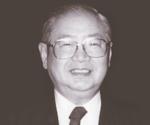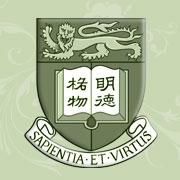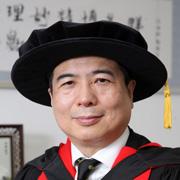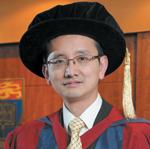
a milestone in the University's history.
To date, a total of 120 Endowed Professorships have been established.

 |
Suen Chi-Sun Professorship in Clinical Science To work tirelessly, to be industrious; this is who Suen Chi-Sun was. With passion and dedication to make a difference, he lived. In this spirit, our endowment supports the unflagging efforts in research and development to prevent and cure disease.
The Suen Chi-Sun Family |
 |
Appointment to be announced |

Sham Pak-ChungAppointed in 2016
The Centre for Genomic Sciences was established by The University of Hong Kong (HKU) to provide leadership in genome research by developing expertise and infrastructure for studies in genomics, proteomics, and bioinformatics. The Centre participates in local and international projects, and supports the Departments of Microbiology and Zoology in identifying and sequencing the agent of the 2003 SARS outbreak. 
Ronnie T P PoonAppointed in 2011
For more than a century the Department of Surgery has served as a leading light in the development of surgical skills and education in Hong Kong. It has been staffed over the years by many dedicated and highly trained professionals whose achievements have put Hong Kong firmly on the international stage. Professor Ronnie Poon is one of the world’s leading authorities on liver cancer. His work has contributed significantly to improved knowledge of tumour biology, and has advanced surgical and non-surgical treatments for this deadly disease. As a result of his work, treatment outcomes have improved, along with the chances of patients’ long-term survival, and an ultimate cure. Liver cancer is one of the five most common cancers worldwide, with a particularly high incidence in Hong Kong and mainland China. More than half of the world’s one million new cases per year occur in the Chinese population, and it is the second most common cancer killer in China. Professor Poon was the first researcher to elucidate the role of the vascular endothelial growth factor (VEGF) in liver cancer, which stimulates the growth of new vessels to supply oxygen and nutrients for tumour growth. His findings contributed to the development of a molecular targeting drug inhibiting VEGF, which interrupts tumour growth by cutting off its blood supply. This drug is currently the only one approved by the food and drug administration authorities in the USA and China for the treatment of liver cancer. It has been shown to prolong the survival of patients. More recently, a research team of Professor Poon was the first in the world to identify and characterize cancer stem cells in human liver cancer, and to isolate a subpopulation of stem cells responsible for the spread of cancer. He is now conducting research to develop new drugs to target such cells, which may ultimately provide a cure for cancer. Professor Poon’s clinical research has also led to improvements in surgery techniques, with current near-zero operative mortality rates and improved long-term survival. In addition, Professor Poon has pioneered the use of non-surgical treatments, such as radiofrequency ablation, microwave ablation and high-intensity focused ultrasound, a totally non-invasive technique which involves eradicating cancer by focusing an ultrasound beam from outside the body into the tumour. He set up the first and so far the only high-intensity focused ultrasound liver cancer treatment centre in Hong Kong. He also started a community-wide liver cancer screening programme for the high-risk population of hepatitis B virus carriers. Among his many honours, Professor Poon was awarded the 2006 International Guest Scholarship of the American College of Surgeons, and, in 2007, the James IV Travelling Scholarship of the James IV Association of Surgeons – the most prestigious scholarship available to academic surgeons in the world. Professor Poon serves as associate editor of two leading international journals and is on the editorial board of several others. He is currently Deputy Chief of the Division of Hepatobiliary and Pancreatic Surgery and Deputy Director of the Centre for Cancer Research at HKU. He is a fellow of the Hong Kong College of Surgeons, the Royal college of Surgeons in Edinburgh, the American College of Surgeons. In addition, he chairs the Scientific Committee of International Hepatopancreatobiliary Association. He also serves as Chairman of Advisory Board of Asian Foundation for Cancer Research. |